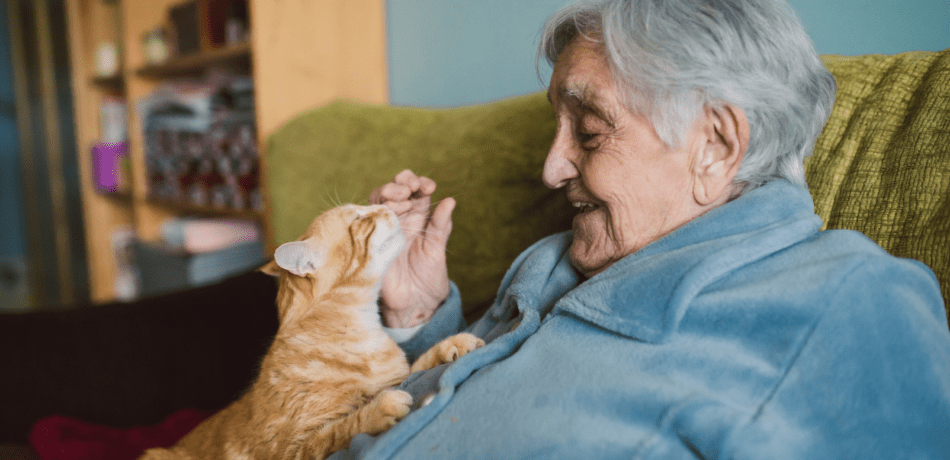Retirement is a time to relax and enjoy life whether you decide to be fully retired or just cut back on your hours and work part-time to keep some extra income coming in. With all this new freedom you may want to travel or get involved in hobbies and activities you couldn’t when you were working full time but what if you have pets?
There are definitely benefits to having a pet in retirement but caring for pets when you’re retired can bring about some changes compared to caring for them while working. We’ve got six tips to help caring for your furry or feathered friends easier.
On This Page
1. Update Your Budget to Include Pet Costs
Now that you’re not working anymore or have a reduction in income, adjust your budget to account for pet food, veterinary care, grooming (if needed) and any potential emergencies. Just like you’ve planned for other costs in retirement don’t forget the costs involved with pet ownership so you can continue to care for your pet.
2. Plan For Your Pet’s Future If Something Happens to You
It’s not something many people want to think about but it’s important to plan for what would happen to your pet if something were to happen to you. When people make end of life plans, they don’t always think of their pet. Even if you’re in the hospital for a few days, who will care for Fido? What if you pass away before your pet? Approach a trusted friend or family member now who could care for your pet or research options like pet trusts which allow money to be given to a caregiver to care for your pet. Having a plan in place will give you peace of mind.
3. Pets Like Routine…Keep Theirs Going
One of the best things about being retired is doing what you want when you want. This might be exciting for you but pets are creatures of habit. Even though you can change your schedule make sure you keep your pet on a consistent schedule. Pets do best with routines and knowing what to expect especially with meal times. Keeping them on a routine helps them feel secure and happy and that helps you too!
4. Travel and Pets
Retirement often means freedom to travel which is great but what about your pet? Creating a plan for when you’re traveling is important for your pet’s health and wellness. If you choose to travel with your pet, make sure where you’re going accepts pets. Check out pet-sitting services, boarding facilities or line up friends or family who can look after your pets while you’re away.
5. Think of Pets if You Downsize
Some retirees choose to downsize their living arrangements by moving into smaller homes or retirement communities. Before making a change like this consider how it would impact your pets. Is your new place pet-friendly? Does it have enough space especially if you have a dog? Pets are impacted by moving just like people as a new place will feel unfamiliar and strange to them. Think of your pet before you make a decision like this so you won’t end up in a situation that negatively impacts them and you!
6. Plan for Changes in Your Health and Mobility
As you age, your own health and mobility may change or decline. Knowing how these changes might impact your ability to care for your pets is important to consider now and plan for. Certain dog breeds or sizes of pets may be better for you as a retiree if you’re considering adopting a pet. Look at what your pet’s care involves, would you need help with dog walking? Cleaning a cat litter box? Figure out what needs doing and find someone to help if needed.
You may be interested in reading Do You Qualify for a Service or Companion Animal?
Colonial Penn is here for you!
Colonial Penn has specialized in making life insurance simple and accessible by offering it directly to consumers since 1957. Click here to learn more.





